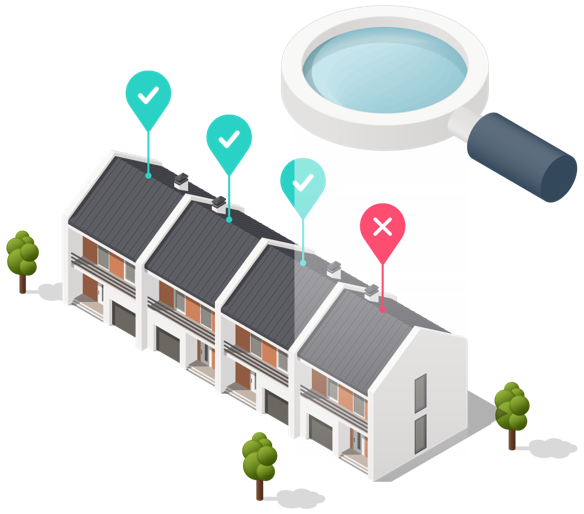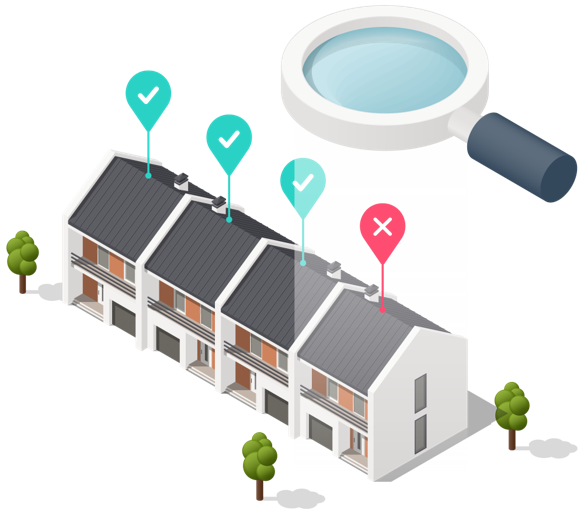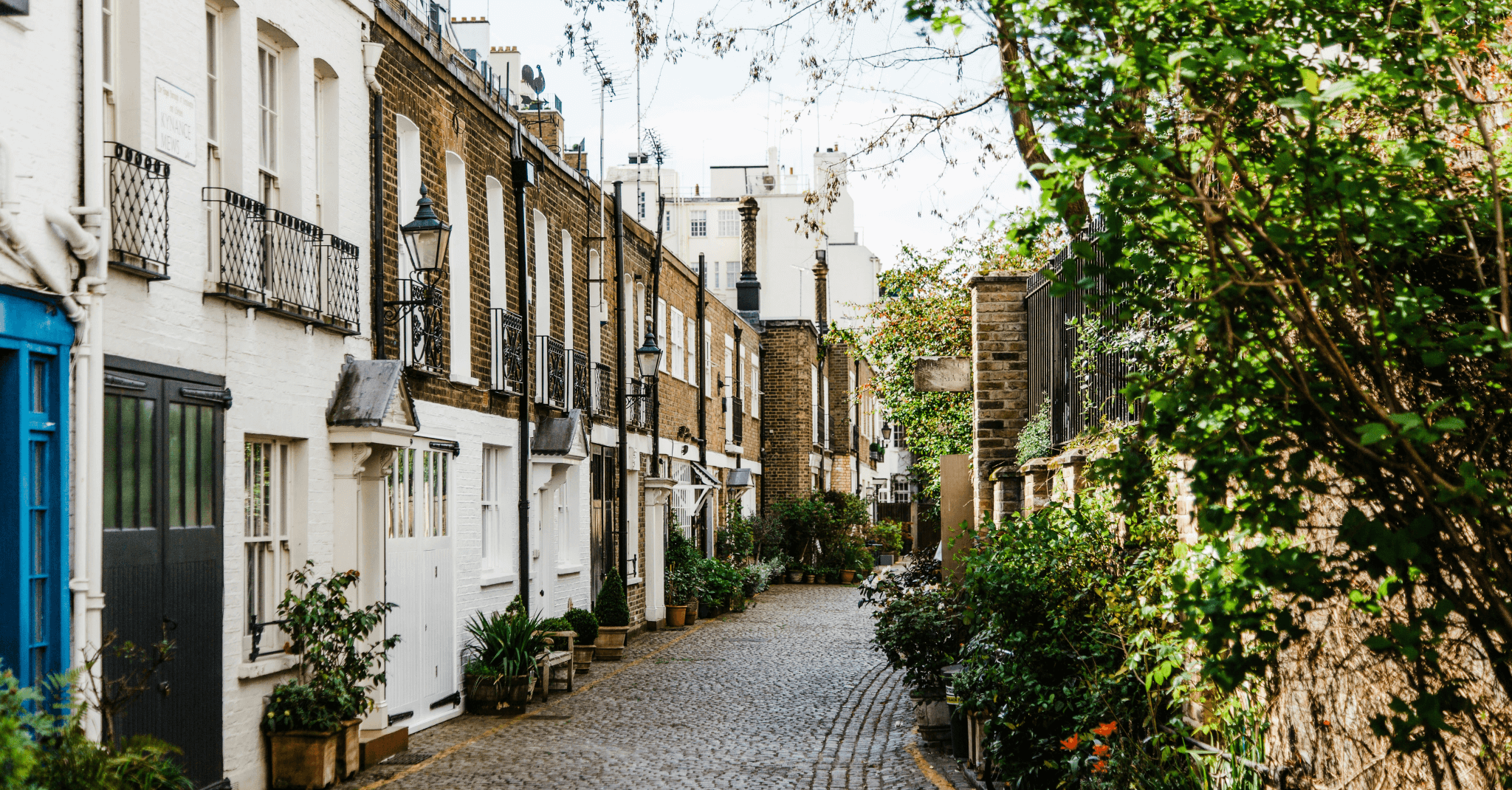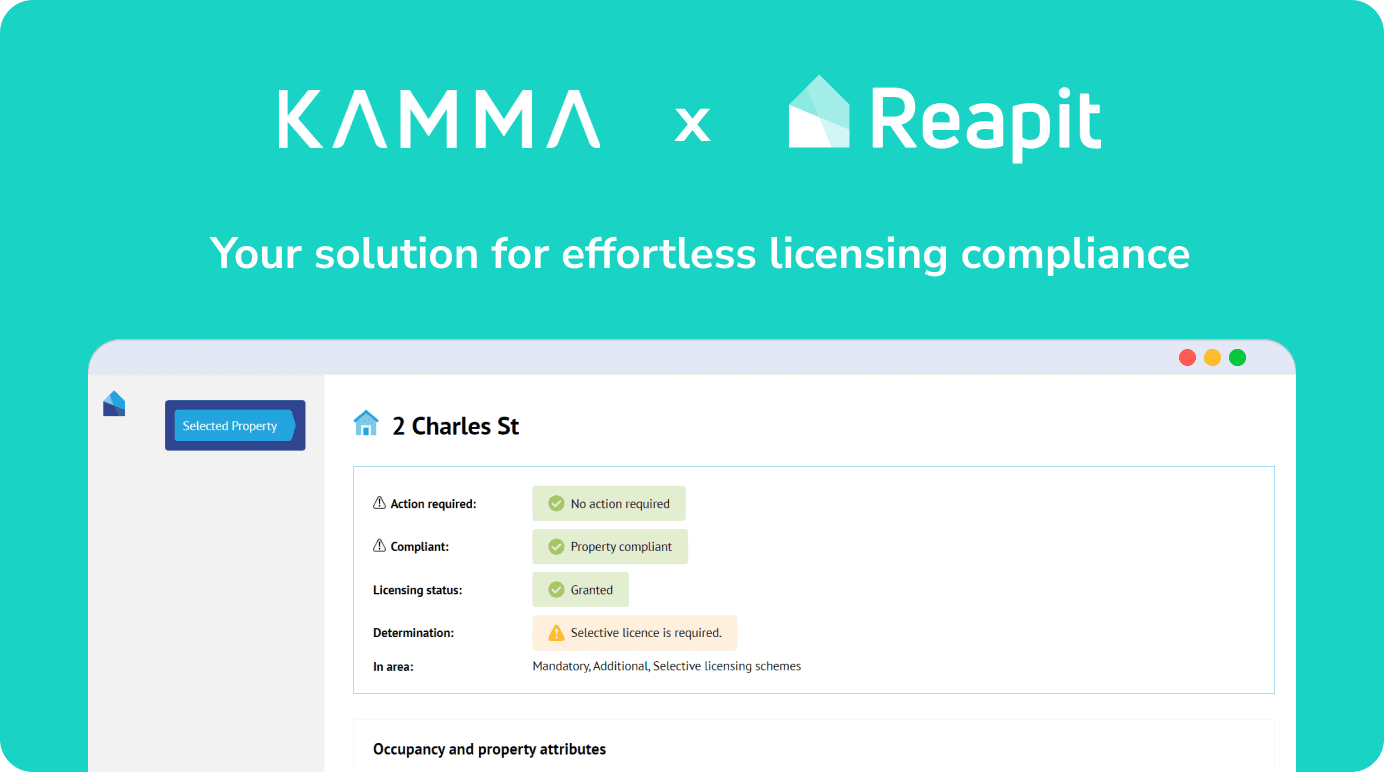- What we do What we do
- How we can help How we can help
- Insights Insights
- About About
- Support Support
- Book a Demo

Kamma’s Rogue Landlord Roundup: October 2019

Property licensing is complex, inconsistent and ever changing. Keeping on top of all the changes requires a sophisticated platform that can cleanse, analyse and sort data and interpret the results to help agents, landlords and surveyors interpret the data and stay compliant.
This month in property licensing brought new industry concerns, large fines, possibilities of new regulations, non-compliance, and a new study into HMOs all over the city of London.
Councils and property licensing round up
Brent Council approved the renewal of their previous additional licensing scheme, with 80% of respondents to the consultation voting in favour of the ratification. The licensing fees are still sticking at £840, and it will stay borough-wide. They are also considering expanding their previous selective licensing scheme to cover areas including “Queensbury, Fryent and Brondesbury Park, Barnhill and Welsh Harp, as well as Northwick Park, Preston, Toyngton, Alperton and Sudbury.”
Lincoln Council recently brought in their second largest fine they have ever issued, with a fine of £40,000 for a landlord in Newport. Churchill had not only failed to license her property but was also lacking many required fire and safety features. There were no fire doors, and no working fire alarms on the first floor, the stairs were not slip resistant, and many of the rooms and flats did not have adequate facilities or fit the legal minimum size. All of these defects could have been fixed with about £6,000, but instead, Churchill will pay the price in hefty licensing fines, reports The Negotiator.
Short-term letting: the rising concerns
BBC1 London aired a special episode of “Inside Out London” on the 28th in which they investigated the world of short-term letting through apps like Airbnb, and the issues it can cause for landlords in regard to licensing law. Tenants across the country are using their current accommodations to make a few extra pounds while they are on holiday by joining rental apps, which have taken over the tourism and hospitality industries. The issue comes when tenants fail to mention this to their landlords or letting agencies, as they can unknowingly break licensing law and create large fines. One example of this happened in Bloomsbury, where tenants brought a £10,000 fine onto their landlord for breaching the licensing agreement. There is a large grey area between who is responsible, as Airbnb has few checks on confirmation of property ownership. This is an opportunity for the industry to increase regulations on this growing market to ensure that landlords are protected and aware of tenants if they are subletting to ensure that they are in check with licensing laws. Keep your eye out for these new regulations to begin, as local councils in Scotland have already begun to vie for resident and official favour.
London’s unlicensed properties and rogue landlords
London Property Licensing recently conducted a study on HMOs in the city of London and found “130,000 unlicensed properties in London which should be licensed under either selective, additional or mandatory HMO licensing schemes.” There are talks of non-compliance, as well as talks of the licensing system needing an upgrade to keep up with the applications that are currently pouring in. Nearly 40% of councils still use paper applications, and it might be time to revamp the process nationwide. Proptech companies like Safeagent are calling for action to streamline the process so tenants and landlords alike are protected while councils can better use their money and resources into catching non-compliant, rogue landlords rather than those whose paperwork was not at the top of the pile.
Kamma has begun conversations with a number of councils to help them target rogue landlords and agents through data driven enforcement. In an age of tight council budgets, marshalling and directing enforcement resources as efficiently is crucial to the battle against rogue and criminal landlords. Kamma’s central mission has always been to ensure that no tenant has to live in unsafe unsuitable accommodation again. These are the first steps in achieving this goal.
Contact us or book a demo now to understand how Kamma can solve property licensing for you.

New insights: how does EPC data impact affordability assessments?
Accurate energy performance data is a must to ensure mortgage lenders can accurately assess affordability and reduce risk – here’s why.
Read more
Kamma’s Response to CVE-2024-0394 (XZ Utils Backdoor)
Last week security researchers publicised a malicious back door in the XZ Utils library, a widely used suite of software that gives developers lossless compression and is commonly used for compressing software releases and Linux kernel images. The backdoor could, under certain circumstances be used to run unauthorised code via the encrypted SSH connection protocol. […]
Read more
Licensing Compliance Simplified: The Kamma-Reapit Integration
The Kamma app is officially live on the Reapit marketplace! This integration arrives just in time to confront the introduction of fifteen new licensing schemes and six current consultations in the first half of the year alone. Kamma’s Reapit integration empowers you to effortlessly manage your licensing compliance through: How does the app work with […]
Read more
Subscribe to the Kamma Newsletters
Regular news, information and insights from Kamma. No spam. Unsubscribe at any time.
Subscribing ...
Sorry, we really want to but we couldn't subscribe you due to missing or incorrect information; please update the information that's highlighted in red and try again.
Well this is awkward. Something went wrong on the internet between your browser and our newletter subscription service. Please let us know and we'll do our best to fix it for you.
Thanks for subscribing! Check your Inbox in a short while for a confirmation email to check it was really you that just subscribed. If you've already subscribed, we'll keep your subscription but you won't receive a confirmation email this time.
